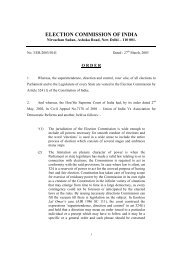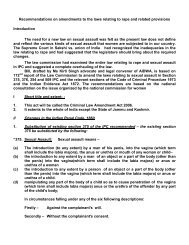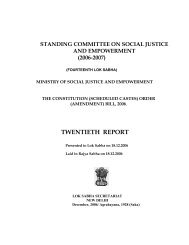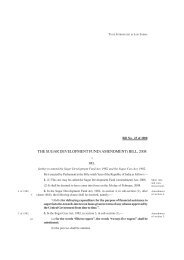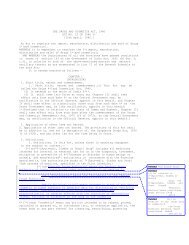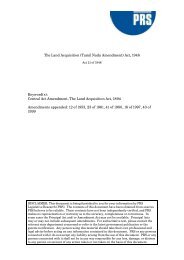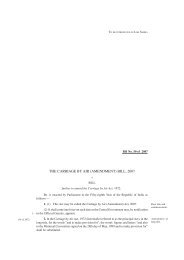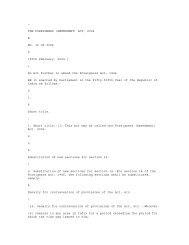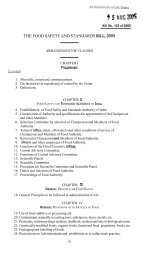Create successful ePaper yourself
Turn your PDF publications into a flip-book with our unique Google optimized e-Paper software.
REPORTIntroductory1. The Jute Industry occupies an important place in the national economy. It is one of the majorindustries in the eastern region, particularly in West Bengal. It supports nearly 4 million farm families,besides providing direct employment to about 2.6 lakh industrial workers and livelihood to another 1.4lakh people in the tertiary sector and allied activities. The production process in Jute Industry goesthrough a variety of activities, which include cultivation of raw jute, processing of jute fibres, spinning,weaving, bleaching, dyeing, finishing and marketing of both raw jute and its finished products. TheJute Industry is labour intensive and as such its labour-output ratio is also high. In spite of variousdifficulties faced by the industry, capacity utilization of the industry is around 75 per cent. Theseapart, the jute industry also contributes to exports to the tune of nearly Rs.1,000 crores. The JuteManufactures Development Council (JMDC), incorporated under the Jute Manufactures DevelopmentCouncil Act, 1983 and the National Centre for Jute Diversification (NCJD), a Society set up by theCentral Government in the Ministry of Textiles and registered under the Societies Registration Act,1860 are the institutions which are presently coordinating the operations of the large number offunctions in the Jute Sector.National Jute Policy2. On account of its eco-friendly and biodegradable characteristics, jute is poised to become oneof the most favoured products. The Government has announced a comprehensive National Jute Policyin April 2005 with a view to develop a strong and vibrant jute sector. The policy enunciates that theapproach for the jute sector will be directed towards reviving the jute economy through supportivemeasures covering research and development; technology up gradation; creating of infrastructure forstorage and marketing of raw jute and market development activities for jute and diversified juteproducts.3. The National Jute Policy also enunciates the creation of a National Jute Board which is a majororganizational initiative of the policy. National Jute Board will be the agency to coordinate andimplement the various programmes of jute sector. The Board will synthesizes various layers ofGovernment decision making and to make for a cohesive approach.Rationale for Establishment of National Jute Board4. In a written note submitted to the Committee by the Ministry of Textiles, it has been stated that5 organizations under Ministry of Textiles, 2 organizations assisted by Ministry of Textiles and 3organizations under Ministry of Agriculture are presently involved in jute related activities. As such,there is lack of coordination among the organizations while executing various promotional schemesand activities relating to jute sector. So, the following rationale have been put forward by the Ministryof Textiles for the establishment of the National Jute Board:-(a)(b)(c)Need for coordination among the large number of organizations functioning in the jutesector;Need to avoid multiplicity of organizations catering to the same target group;Need for harmonization of the disjointed activities of such institutions for an integratedapproach for development of the jute sector; and5



